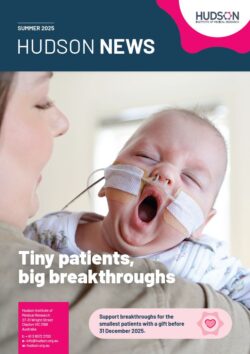Dr Neville Fields is a member of The Ritchie Centre.


Dr Neville Fields
Degree:
PhD student
Research Centre:
Area of study:
Clinical Trial Novel Therapeutic for COVID-19 in Pregnancy
Year of enrolment:
2021
Why did you choose Hudson Institute and your research group?
Excellent track-record of medical research with access to a wide range of teams and capabilities. Based at Monash Medical Centre and hence close proximity to a patient population with active clinical workflow. My research group has undertaken work on sulforaphane in pregnancy and provided me the means and supervision to undertake a randomised clinical trial in pregnancy.
What is your research about and what do you hope to achieve?
My research is around the novel therapeutic sulforaphane for the treatment of various disorders of oxidative stress in pregnancy including COVID-19 and preeclampsia. I hope to explore the potential benefits of sulforaphane in pregnancy and to characterise the in-utero and post-natal exposure of various products yielding sulforaphane to pregnant individuals.
What is it like being a student at Hudson Institute?
Wonderful! Hudson Institute and The Ritchie Centre provide a huge array of students across various areas of research and programs from Honours through to PhD. I have met a lot of wonderful people and have enjoyed the experience of getting to know so many people and learn about their work and experiences.
What opportunities have you had at Hudson Institute?
Too many to list here but certainly been able to write a few papers and attend both local and international conferences with the team. I have been able to develop excellent collaborations and been able to contribute to medical school teaching and lecturing with simulation workshops.
How will your research help others?
I am hopeful that we can characterise sulforaphane pharmacokinetics and bioavailability further in the pregnant population and hopefully increase the human evidence and data for its use in pregnancy. I am hopeful that sulforaphane will move into trial in a number of different disorders of pregnancy including preeclampsia, gestational diabetes and potentially fetal growth restriction in the future.

